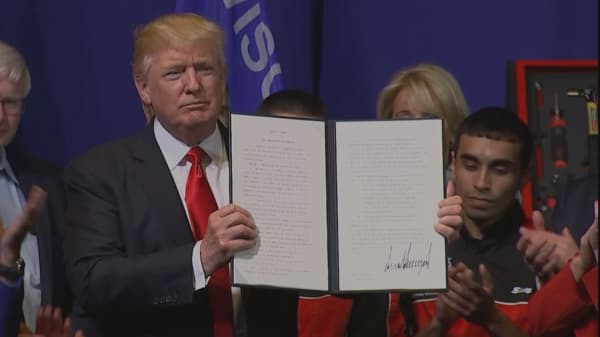The backlash in Arizona was severe. The ACLU reports that Arizona lost $141 million from canceled conventions in the year following the passing of SB1070. Additionally, the effect from the lost revenues resulted in $250 million in lost economic output, and almost $10 million in lost tax revenue.
Immediately following the passing of SB1070, a coalition of civil rights organizations including the ACLU, the National Immigration Law Center and the Mexican American Legal Defense and Educational Fund, filed a lawsuit against Arizona. In September 2016, Arizona settled the lawsuit and paid $1.4 million in attorney's fees to the organizations and announced that it would no longer require police officers to inquire about a person's immigration status. This is where Texas is headed — millions of dollars lost in revenues from tourism and conventions, millions of taxpayer's dollars wasted in legal battles, and ultimately this racial profiling law will not prevail.
Governor Gregg Abbott needs to look deep into the heart of Texas and recognize the ripple effect he is creating with the passing of this racial profiling law. In the 1990s, Proposition 187 made its way through California. The measure required law enforcement, education and health officials to inquire about a person's immigration status. The law was never enacted after a judge halted the measure. The effect took time, but the political implications were lasting. In 1994, Republicans held half of California's 52 seats in the U.S. House; today, they hold 14 seats.
I believe the Texas that led the country in giving undocumented students an opportunity at higher education, my home state, is the state that will ultimately prevail. Just like Prop187 in California, SB4 might just be the tipping point in Texas.
As Manny Fernandez said in his New York Times essay, "Texas [is] forever, and Republican Texas is [a kind] of temporary occupation."
Commentary by Julissa Arce is author of the book, "My (Underground) American Dream." Arce made national and international headlines when she revealed that she had achieved the American Dream of wealth and status working her way up to vice president at Goldman Sachs by age 27 while being an undocumented immigrant from Mexico. She currently works with the Ascend Educational Fund, a scholarship program for immigrant students in New York City. Follow her on Twitter @julissaarce.
For more insight from CNBC contributors, follow @CNBCopinion on Twitter.
Watch: Trump signs executive order on immigration






